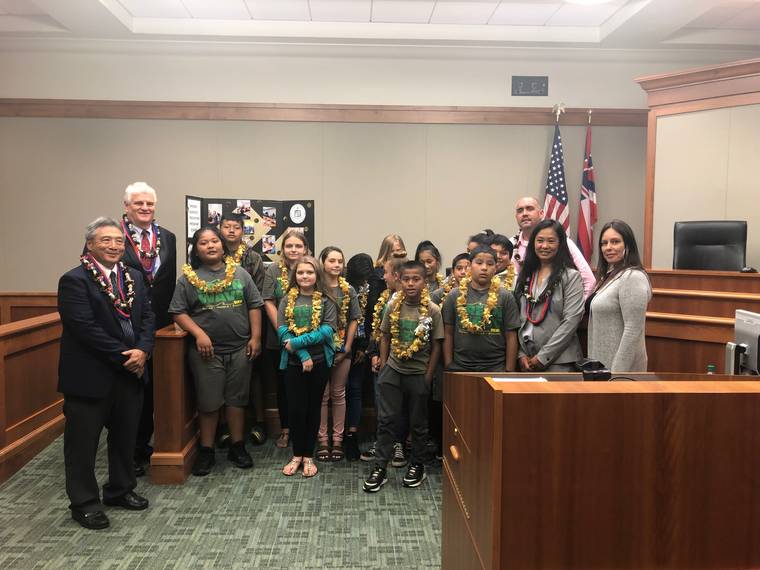Keaau Middle School students participating in the Chronic Absenteeism Prevention Program recently celebrated their achievements with a graduation ceremony for its first class before school officials, state Department of Education representatives, Chief Justice Mark E. Recktenwald, 3rd Circuit Chief Judge Greg Nakamura, Judiciary staff and Salvation Army representatives.
Third Circuit District Family Court Judge Darien Nagata, who spearheaded the program for the Judiciary, presided over the ceremony where sixth-grade students, who began the school year identified as being chronically absent in elementary school, were recognized for the strides they made toward regular attendance.
Judge Nagata praised the graduates, noting, “You’ve all done your part. We never asked for perfection but we did ask for progress.”
CAPP is comprised of three tiers:
• Watch list, where the school works intensively with the families.
• Court intervention by the Judiciary’s Juvenile Probation Department and Salvation Army.
• And finally, intensive court intervention involving more frequent contact with the student and family.
Nagata gave each student a plant to nurture during the summer instead of the more traditional graduation lei.
“Your homework is to water it every so often and watch it grow,” Nagata said. “Like the plant, I want each and every one of you to never stop growing — whether it be growing taller, or growing in your mind, in your attitude or in your education.”
The graduates will continue to work with their school counselor, Krissy Bajo, next year.
“This program is a collaboration between many organizations, but the heart of the program is truly the students,” Recktenwald said. “While the original intent of the program was to increase school attendance rates, which the program did, the increased unity between the students and staff as a result of this program really stands out to me. I hear that the students make school attendance look so fun, that other students are asking how they can be part of the program!”
“The CAPP program will continue as we target the incoming sixth-graders who have been chronically absent,” Nagata added. “We will use the three-tier format with some adjustments based on what we learned this past year. We hope to have some (of) this year’s graduates possibly serve as mentors for the incoming class.”



